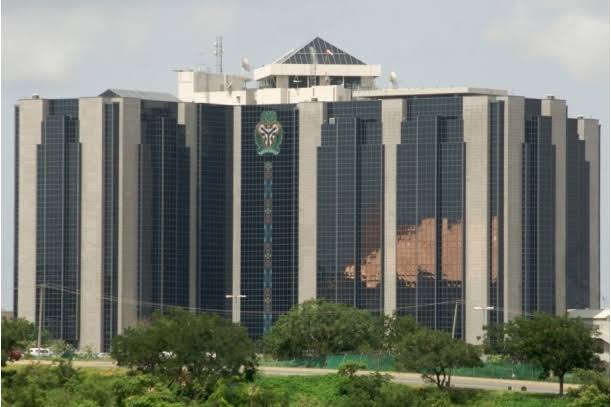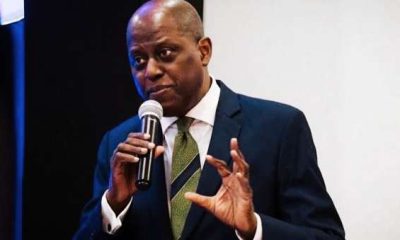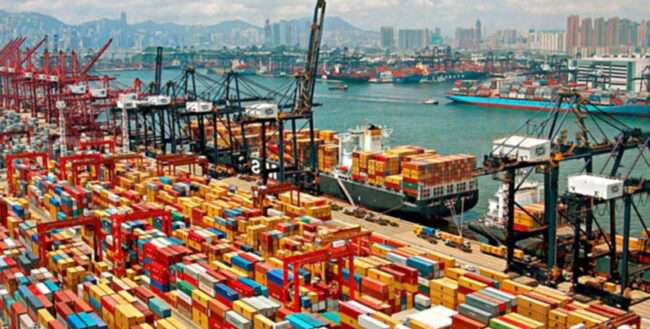Business
MPR: Fear of recession, hyper-inflation loom

BY EMEKA EJERE
There are growing concerns that the second hike in the monetary policy rate (MPR) by the Central Bank of Nigeria (CBN) may create more hardship for Nigerians who are currently grappling with eroding disposable incomes occasioned by continuous rise in prices of goods and services.
This is against the backdrop of strong indications that the inflationary pressure is not coming from monetary factors but from high costs of production such as energy, insecurity, unfavourable rising exchange rate, among other factors.
The Monetary Policy Committee (MPC) of the CBN had on Tuesday again raised the MPR from 13 per cent to 14 per cent. This came barely two months after the MPC, during its bi-monthly meeting in May, raised the benchmark interest rate from 11.5 per cent to 13 per cent.
The interest rate hike came barely one week after the National Bureau of Statistics (NBS) put its June inflation figure for the economy at 18.6 per cent, the highest in five years. Inflation had hit 17.71 per cent in May, 2022.
The MPC had left the MPR unchanged for over two years. However crippling inflation, worsening purchasing power and their attendant effects on the economy appear to have forced the CBN to effect policy changes.
Speaking shortly after a two-day MPC meeting, CBN governor, Mr Godwin Emefiele, argued that a new rate hike was necessary to put the economy on track.
Emefiele, who spoke in Lagos, said the MPC noted with concern the continued aggressive movement in inflation, even after the rate hike at its last meeting. He expressed the committee’s unrelenting resolve to restore price stability while providing the necessary support to strengthen the fragile recovery.
“In summary, the MPC voted to increase the MPR from 13.0 to 14.0 per cent; retain the asymmetric corridor at +100/-700 basis points around the MPR; retain the CRR at 27.5 per cent; and retain the Liquidity Ratio at 30 per cent,” he said.
Emefiele added, “As regards tightening policy stance, members were unanimous that given the aggressive increase in inflation, coupled with the resultant negative consequences, particularly on the purchasing power of the poor, as well as retarding growth, there is the need to continue to tighten.
“However, the policy dilemma was hinged around the level of tightening needed to rein in inflation, without dampening manufacturing output, which could result from the higher cost of borrowing.”
Cost-push than demand-pull
Speaking on the spiraling inflation rate and the hike in MPR, a financial analyst, Engr. Tony Chinwe, sympatised with the CBN governor, who he said is facing a lot of pressures caused on account of the failures of politicians.
“What is there to say? These are not the best of times for the CBN Governor who is visited with unbearable pressure from the sins of our political leaders”, he said.
“Many manufacturers are adopting shrinkflation strategy to stay alive, knowing fully well that they can’t even transfer 40% of the cost to the consumers. For instance, some biscuits that used to be five pieces in a pack are now three or four pieces with lower milk content to confuse the consumers.
They either reduce salary, downsize or retain the 2014 salary level as Stagflation ravages the real income of workers. The middle class population is on the down trajectory.
On how the MPR hike will affect leasing sub sector, the Executive Director, C & I Leasing Plc Alex Mbakogu’ said:
“Operators in the leasing space are essentially net takers in the market. An increase in MPR where other lenders derive their rates will increase cost of assets amortization. Leasing will become a bit pricey.
“Because increase in rate will increase running cost and disposable income….chances are the effect will obviously tilt towards some adverse side. Like in general micro/macro levels, higher interest rates have never been an ideal situation for any business.
Also speaking, an economic affairs analyst, Mr. Kola Olapite, argued that band wagon effect spurs CBN to action without considering Nigeria’s economic upheavals where all the economic indicators are swiftly pointing to negative directions.
Olapite said, “Without any equivocation, I think that Emefiele just woke up and called his boys and said to them , what are we waiting for ? The U.S Federal Reserve has just increased her Repo Rate, Bank of England did the same thing, European Central Bank is also planning to increase her own MPR. So, guys, what do you think? Then, what answer do you expect from them?
“Come to think of it, the U.S Federal Reserve increases her MPR to 0.75%, BOE increases her own to 1.25%, European Central Bank is planning to increase her own by 0.25 basis points and etc. Are we supposed to follow suit? I don’t understand please.”
The Deputy-President of the Lagos Chamber of Commerce and Industry, Dr. Gabriel Idahosa, said the rate hike would amount to misery for many Nigerians wallowing in abject poverty.
According to him, the Nigerian situation, with over half the population living below the poverty line, does not justify raising interest rates in the manner it was being done in advanced economies where the income level is significantly higher than Nigeria’s.
Idahosa said, “Our own economy cannot stand this kind of rate hike, where you have unemployment, inflation going to 20 per cent. Manufacturers are not able to cope with current interest rates because of the cost of production. Diesel alone is sending many of them out of business. If you now add a high-interest rate, it’s not good for businesses that are already suffering from those other issues of inflation and power supply. They are supposed to do it on paper because the monetary policy says if you have inflation, you should increase interest rates.
“People in advanced countries are earning much more than they need to survive. So, when you increase rates like this, they will be able to save more. It makes sense in a mature economy, but half of the Nigerian population are currently below the poverty line, by all indices.”
Disturbing projections
The World Bank in its latest Nigeria Development Update report, titled, ‘The Continuing Urgency of Business Unusual’, said that inflation shock is projected to push about 15 million more Nigerians into poverty between 2020 and 2022.
“Overall, the ‘inflation shock’ is estimated to result in about 15 million more Nigerians living in poverty between 2020 and 2022,” the report read.
Nigeria’s inflation as of June is 18.6 per cent, which is higher than the World Bank’s projection of 15.5 per cent for 2022.
According to the global lender, inflationary pressures in the country are driven by certain policy distortions.
The bank said, “Inflationary pressures were compounded by policy distortions, in particular (i) lack of flexible foreign exchange management, (ii) trade restrictions, and (iii) conflicting monetary policy goals.”
It further disclosed that global supply shocks exacerbated inflationary pressures and increased the urgency.
In June last year, President Muhammadu Buhari, inaugurated the National Steering Committee of the National Poverty Reduction with Growth Strategy chaired by Vice President Yemi Osinbajo.
This, he said, re-echoes his commitment to lifting 100 million Nigerians out of poverty in 10 years, with a well-researched framework for implementation and funding. Despite this, the rate of poverty in the country has been on the rise, driven significantly by inflation.
But in its ‘A Better Future for All Nigerians: 2022 Nigeria Poverty Assessment’ report, the World Bank said that poverty reduction stagnated since 2015, with more Nigerians falling below the poverty line over the years. The Washington-based bank added that the number of poor Nigerians is projected to hit 95.1 million in 2022.
Just on Tuesday, Minister of Agriculture and Rural Development, Dr. Mohammad Abubakar, raised the alarm that the current inflation in food prices across the country may drive more Nigerians into poverty, unless appropriate measures were taken.
Abubakar, who expressed the concerns in Abuja at the national workshop on the applications of Juncao technology and its contribution to the achievement of sustainable agriculture and Sustainable Development Goals (SDGs) in Nigeria, however, stated that the rise in food prices was not peculiar to Nigeria but a global issue occasioned mainly by climate change.









